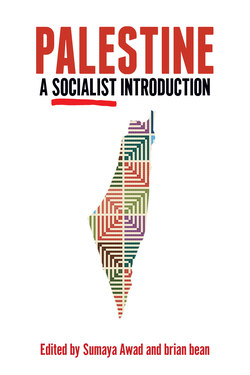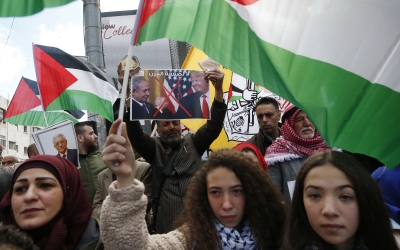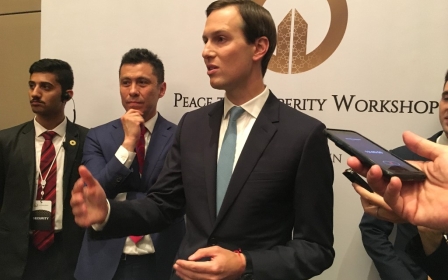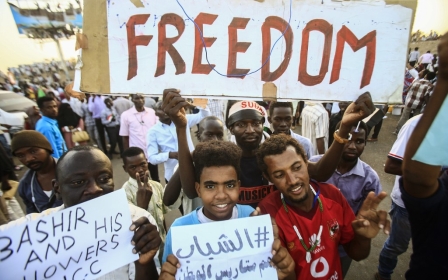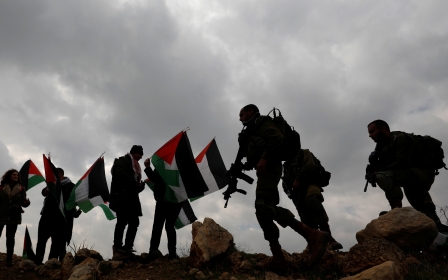Palestine: A socialist introduction to the liberation struggle
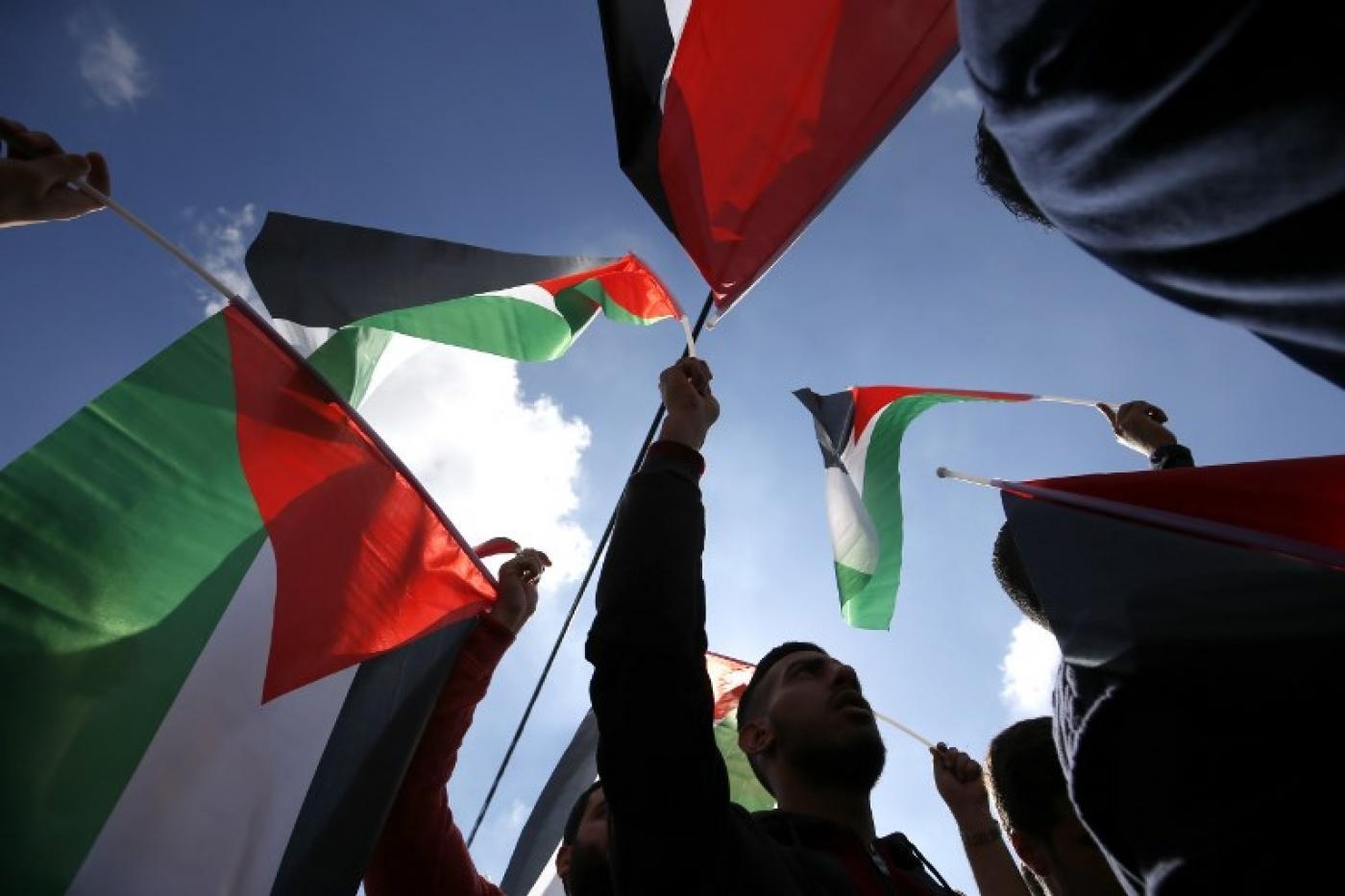
The past decade has been marked by a seemingly never-ending assault on the Palestinian people. Continuous Israeli settlement construction, massacres in besieged Gaza, the US embassy move to Jerusalem, and normalisation deals between Israel and several Arab states are just a few examples.
At the same time, the Palestine solidarity movement has come under attack across Europe and North America. Laws banning boycott campaigns and equating anti-Zionism with antisemitism, the criminalisation of Palestine activism, and the growing imposition of a flawed antisemitism definition, have all contributed to an increasingly repressive atmosphere.
In the face of these enemies, the Palestinian people have struggled, organised, lost, and risen again to fight another day
Activists and public figures have found themselves maligned and targeted in the media, at work and in universities, as the public space to oppose Israel’s ongoing colonial crimes has shrunk considerably.
As such, talking about Palestine, its history, its people and their liberation struggle has become increasingly difficult. This is both a grave injustice and a serious strategic challenge for the movement as a whole. To escape the current impasse, activists must be able to discuss, debate and learn from one another.
In this context, the collection Palestine: A Socialist Introduction, edited by Sumaya Awad and Brian Bean, is of vital importance. Written primarily by Palestinian and Arab socialists, the collection of 12 pieces aims to introduce readers to an ongoing, rich tradition of Marxist analysis from, and about, Palestine. It provides a powerful intellectual tool for those who want to understand the current situation and organise to change it.
New MEE newsletter: Jerusalem Dispatch
Sign up to get the latest insights and analysis on Israel-Palestine, alongside Turkey Unpacked and other MEE newsletters
Interconnected struggles
The authors focus on placing both the history of the colonisation of Palestine and the struggle for its liberation in a broader regional and international context. They reaffirm the interconnected nature of different struggles, and identify the central role that the Palestine liberation struggle continues to play in the liberation of us all.
The introduction, written by the editors, opens with a quote from Palestinian Marxist Ghassan Kanafani: “The Palestinian cause is not a cause for Palestinians only, but a cause for every revolutionary, wherever he is, as a cause of the exploited and oppressed masses in our era.”
This theme remains key. The struggle for the liberation of Palestine connects with revolutionary movements against authoritarian regimes in the Middle East and North Africa, social movements in North America and Europe, and movements fighting back against neoliberal reform and imperialist encroachment around the globe.
The first section of the book focuses on Palestine’s settler-colonial history and present, the role of Israel as an extension of US imperialism in the Middle East, and the history of the Palestinian liberation struggle. These pieces place the history of Palestine in a global and regional context marked by European colonisation, US imperialism and the repressive nature of regional ruling classes. In the face of these enemies, the Palestinian people have struggled, organised, lost, and risen again to fight another day.
Mostafa Omar powerfully reminds readers that when different sections of the Palestinian movement have attempted to ally themselves with one of these enemies, they have been used, betrayed and rejected. This serves as an important reminder for activists today who hope to find political shortcuts out of the current impasse.
Revolutionary wave
The second section further expands on these themes by reflecting on the place of Palestine in the MENA region as whole. In “Not an Ally: The Israeli Working Class,” Daphna Thier reflects on the Israeli labour movement’s participation in the colonisation of Palestine, and the benefits it extracts from Israel’s colonial and military might.
Toufic Haddad’s piece, “The Price of ‘Peace’ on their Terms,” revisits themes developed previously in his important book on the political economy of the so-called peace process and the integration of the Palestinian Authority in Israel’s colonial rule. This is followed by Jehad Abusalim’s “Palestine in Tahrir,” which traces the importance of Palestine in the liberation of the region as a whole, and its centrality in the revolutionary wave that emerged in 2011 and found new breath in 2019.
The third and final section turns its attention to the role of international solidarity beyond the region. In an interview with boycott, divestment and sanctions (BDS) co-founder Omar Barghouti, the book’s editors discuss the achievements and tasks ahead for the movement, while other pieces analyse the relationships between Palestinian liberation, women’s liberation and the Black liberation struggle in the US.
An afterword by poet Remi Kanazi is addressed directly to the international movement, reminding us of the ongoing struggles in Palestine, those waged against colonialism and imperialism in the past, and the importance of continuing the collective, international, grassroots battle for liberation.
The message is clear: the Palestinian people have faced many enemies, not only the Zionist movement and its colonial project, but also western states that supported it and regional powers that made their peace with it, fearing the Palestinian movement’s destabilising power.
Charting a new course
In the face of these terrible odds, the struggle for Palestinian liberation continues. Freedom can only be fought for from below. It is in our streets, workplaces, universities and communities that we must fight for our liberation and that of all the oppressed and exploited.
Especially in this time of retreat and reflection, the book makes an important contribution to the Palestine solidarity movement. By returning to the history of the Palestinian people’s struggle for return and liberation, the authors chart a course forward for us today. It is a difficult one, based on a principled opposition to oppression and exploitation everywhere - but it is the only one there is.
In the words of the masses in revolt across the MENA region, also the title of the book’s conclusion, it is: “Revolution Until Victory”.
The views expressed in this article belong to the author and do not necessarily reflect the editorial policy of Middle East Eye.
Middle East Eye delivers independent and unrivalled coverage and analysis of the Middle East, North Africa and beyond. To learn more about republishing this content and the associated fees, please fill out this form. More about MEE can be found here.



